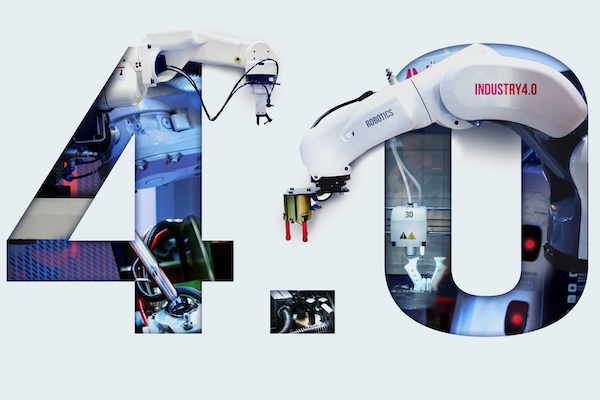
Imagine handing a smartphone to a caveman. The leap in technology from fire to 4K video might make his brain explode. But what about someone from more recent times? Imagine showing that same smartphone to an assembly line worker from the early 20th century. That device would be absolutely mind-blowing, but the path to such an achievement could in fact be fathomable. Jules Verne was already imagining space travel more than a hundred years before it became reality. Only 12 years after Henry Ford added a mechanized belt to his assembly line pumping out Model T’s, Nikola Tesla described the concept of instant wireless communications over instruments that would be “amazingly simple” compared to the telephone and that could be carried “in his vest pocket.”
Industrial Revolution: The Coming Of Age Of Industry 4.0
Technology evolves much faster than it once did. Landline telephone took 75 years to achieve what the mobile game Angry Birds accomplished in just 35 days on the market: reach 50 million users. Similarly, the Industrial Revolution (or “Industry 1.0”) began in the mid 18th century with advances in materials (iron and steel), energy (steam and electricity), and machines (the loom). The second Industrial Revolution (Industry 2.0) developed about 150 years later with the advent of the assembly line. It only took another roughly 70 years for microchips and computers to bring about the beginnings of automation and Industry 3.0. Now only about 50 years on, we have begun implementing advanced automation through cyber-physical systems (CPS) and the internet of things (IoT) to enter the fourth industrial revolution, or Industry 4.0.
The revelation of Industry 4.0 is full optics and self-correction. Traditional automation still requires a certain amount of human intervention and decision making. When granted the power of full connectivity and the brains of algorithmic analysis, we arrive at something much more intelligent: smart manufacturing.
The Instruments Of Smart Manufacturing
Just as the steam engine and loom powered the original Industrial Revolution, so too are IoT sensors, cloud computing, and artificial intelligence powering advances in smart manufacturing. Manufacturing equipment is now capable of self-sensing, self-acting, and interconnected communications with each other in real time. Mixed together, these ingredients make for rapid, accurate decision-making automated out the hands of mere mortals.
Why burden a workforce with critical decisions involving mountains of data? Fully digesting petabytes of data takes teams of people and hours, even days, of time. Machine operators, technical engineers, and shop floor supervisors must meet to discuss solutions and reengineer designs. The data they analyze may be collected via archaic paperwork and record cards. Obviously, these procedures are time-consuming, particularly when attempting to keep pace with consumer expectations and vicious competition in the era of Industry 4.0.
These inefficiencies have real impact. In a pre-pandemic world, 75 percent of large manufacturers were already looking to update supply chain operations using IoT and analytics-based situational awareness before the end of 2019. Now, by the end of 2021, 90 percent of all manufacturing supply chains will have invested in the technology and business processes necessary for true resiliency, resulting in productivity improvements of 5 percent.
How Smart Manufacturing Benefits The Supply Chain
Companies adapting to Industry 4.0 through smart manufacturing solutions discover a myriad of benefits. A smart manufacturing model improves yields, quality, safety, and compliance, while recalls, waste, and downtime are dramatically minimized. These strides are achieved by widening the manufacturing scope from inside the plant to the entire supply chain.
ThinkIQ, for example, provides a real-time material-centric view of manufacturing and the entire supply chain. Our systems extract greater value from existing IoT sensors and business systems, collecting data across the value chain. Utilizing Artificial Intelligence Markup Language (AIML), we identify material movements, correlations, and root causes. The resulting trustworthy, fact-based provenance data delivers actionable insights and decisions that make the value chain smarter. With smart manufacturing, companies reap the benefits of asset efficiency, greater product quality, lower operating costs, and greater environmental sustainability.
Now consider that 57 percent of companies believe their supply chain gives them a competitive edge that enables further business development. Smart manufacturing automation has accounted for a 25 percent improvement in productivity and a 50 percent reduction in the rate of defects. ThinkIQ itself has doubled production yield, eliminated 99.999 percent of recalls, and saved more than $40 million in operational savings.
The future is here, and unsurprisingly, it arrived faster than ever before.
To learn more about how ThinkIQ Manufacturing Digital Transformation SaaS delivers the smart manufacturing tools you need to compete in Industry 4.0, get in touch with a ThinkIQ expert today or you can download our new eBook titled "Advanced Material Traceability Revolutionizes Digital Transformation"

